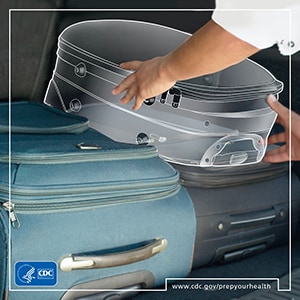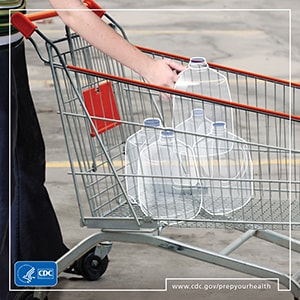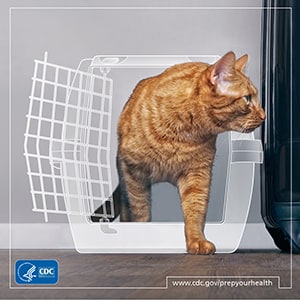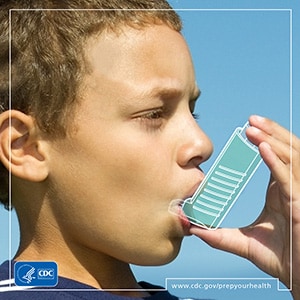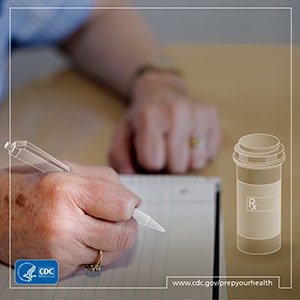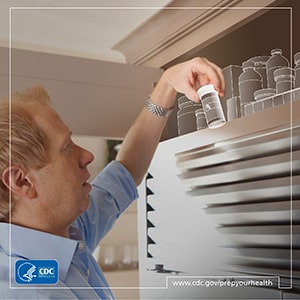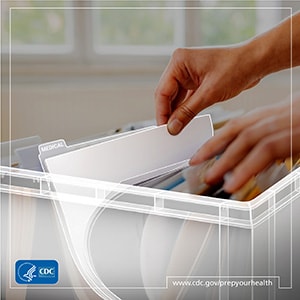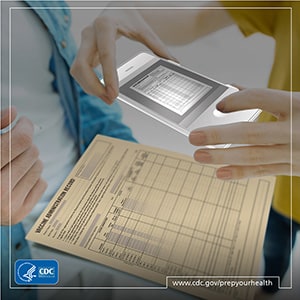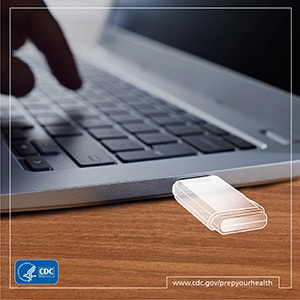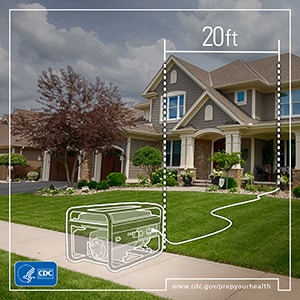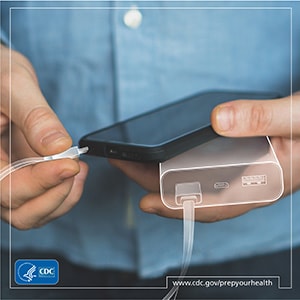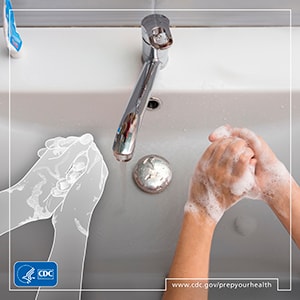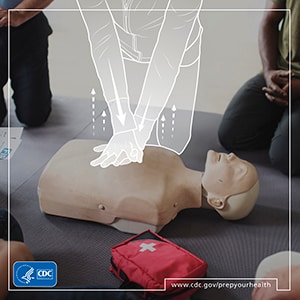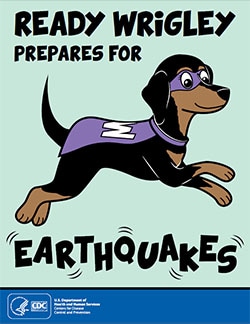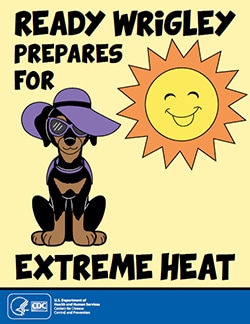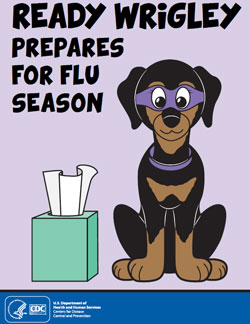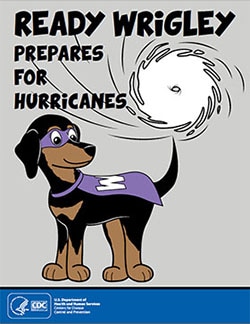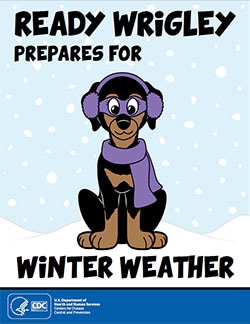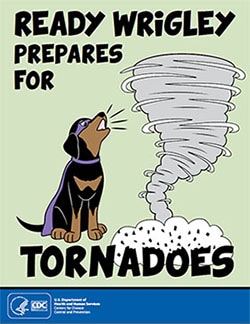CDC Digital Media Toolkit: Take Action
This CDC Digital Media Toolkit suggests ways people can Take Action before a disaster, disease outbreak, or other emergency.
What Does ‘Take Action’ Mean?
Taking action is about improving your capability to protect your health and wellness during a disaster, disease outbreak, or other emergency. It includes gathering essential supplies, learning self-help skill, and gaining the self-confidence you need to respond during an emergency.
Disasters and emergencies can have widespread and long-lasting effects on the public health and health care systems. Be prepared for when access to services and resources is limited by having emergency supplies that include:
Prescriptions
About half of all Americans take a prescription medication as part of their daily routine. A disaster could make it difficult to find an open pharmacy and/or get your prescription filled. If possible, organize and protect your prescriptions, over-the-counter drugs, and vitamins to prepare for an emergency.
Paperwork
Paperwork refers to any important papers that might help you prove medical coverage, ownership, or your identity after an emergency. Collect and protect insurance cards, identification documents, and copies of emergency action plans to prepare for a short-notice evacuation because of a wildfire, earthquake, or other event.
Power sources
On average, people experience about four hours of power loss each year. Power outages caused by a large-scale disaster can last much longer and—as a result—can become life threatening for people who rely on electrically powered medical equipment and devices. Be prepared for a prolonged blackout with alternative heating and lighting, and backup power sources for your cellphone, appliances, and medical devices.
Practical skills
Practical skills are self-health and life-saving skills and lessons that you can learn and practice—some of them every day—to prepare for an emergency. Teach and encourage those around you to learn practical skills, such as hands-only CPR and handwashing, to help protect yourself and others in an emergency.
